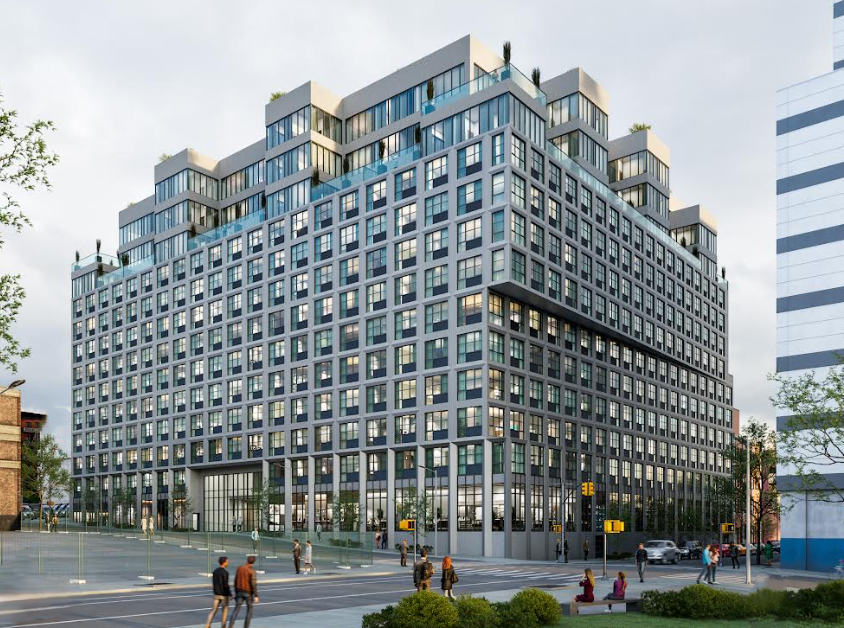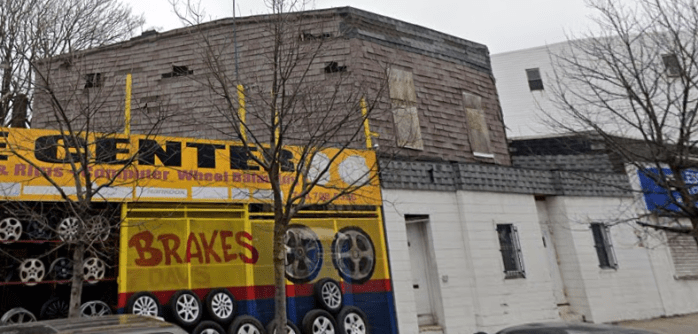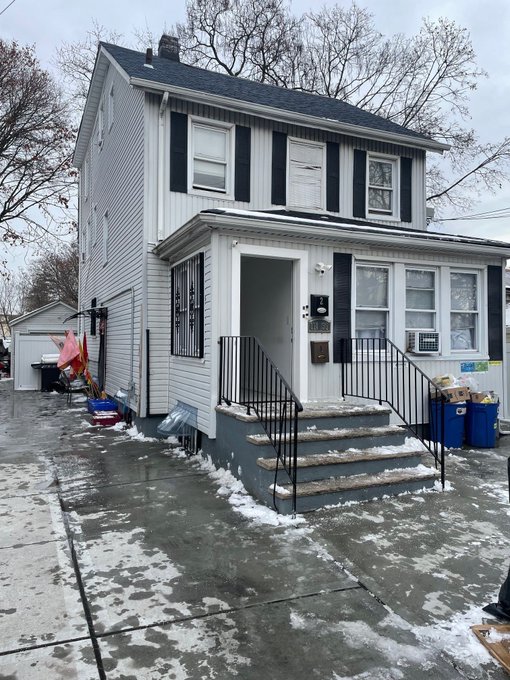While Donald Trump’s re-election stole the political spotlight nationally in 2024, there were plenty of stories keeping the New York political sphere buzzing.
From a series of clashes between Mayor Eric Adams and the City Council to Adams’ indictment on federal corruption charges, the year in local politics was anything but sleepy.
Below, amNewYork Metro compiled some of the biggest events in New York politics in 2024.
The ‘How Many Stops Act’ battle
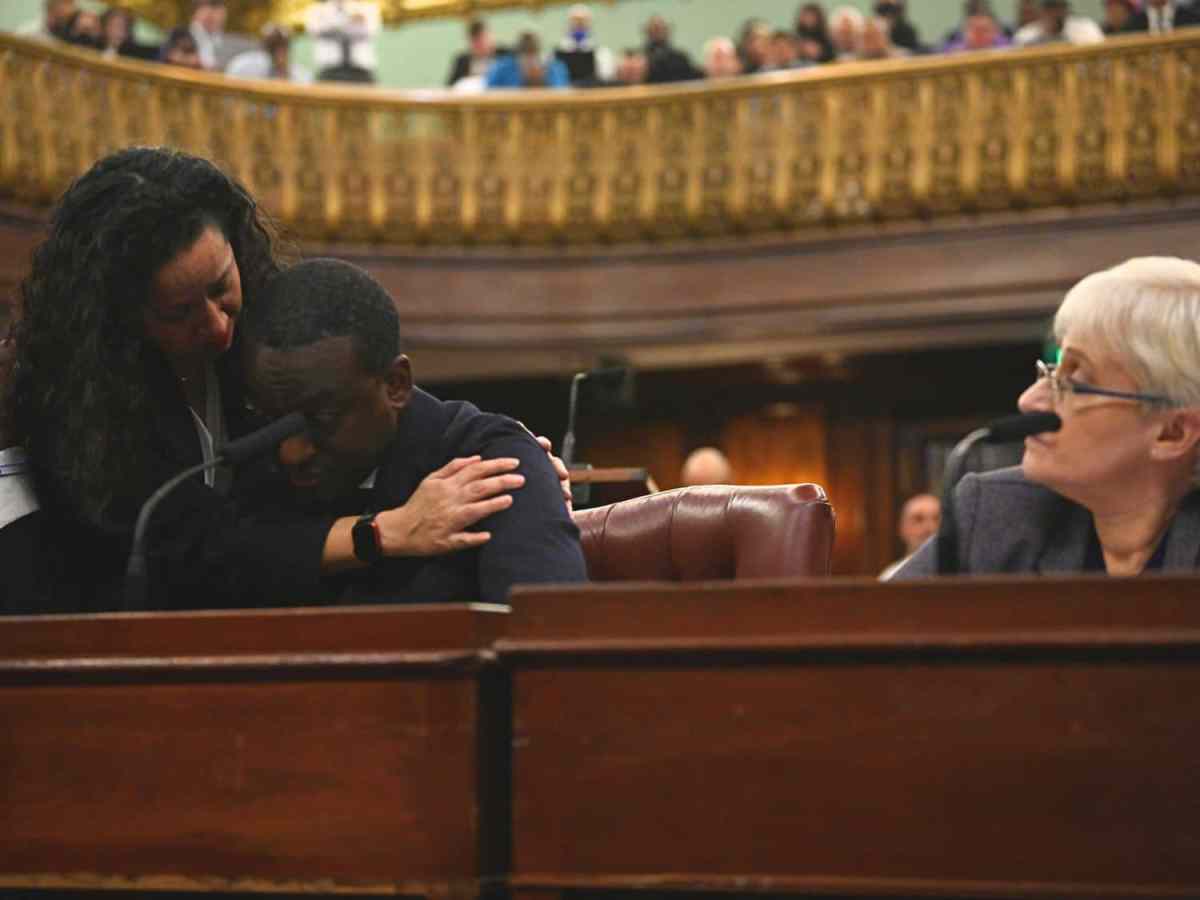
The year kicked off with one of the bitterest clashes between Mayor Adams and the City Council to date: the fight over the so-called “How Many Stops Act.”
The legislation requires the NYPD to report on its most mundane civilian encounters — with the aim of boosting transparency and better tracking how often cops use stop-and-frisk tactics. The mayor and police brass fiercely opposed the legislation, arguing it would make it harder for cops to protect the public by wasting their time with hours of additional paperwork.
Adams vetoed the measure after it originally passed the council in late 2023 and attempted to sway city lawmakers to side with him through an intense lobbying campaign. But the council overrode the mayor’s veto, garnering even more votes than it originally passed the measure during an emotional Jan. 30 meeting.
Suozzi v. Mazi
In a year full of pivotal Congressional races up and down the Empire State, the first was the special election for New York’s 3rd Congressional District, covering parts of eastern Queens and Nassau County. The race was triggered when ex-GOP Rep. George Santos was expelled from Congress in late 2023 following his 23-count indictment for campaign finance fraud.
The special election was between Democrat Tom Suozzi, who had formerly held the seat for three terms, and Republican Nassau County legislator Mazi Melesa Pilip. While the election was hard-fought, Suozzi came out on top with 54% of the vote to Pilip’s 46%. It was the first of several Congressional seats on Long Island and upstate that Democrats flipped this year.
Suozzi easily won a full term in the November general election and will serve in Congress for the next two years.
Congestion pricing pause
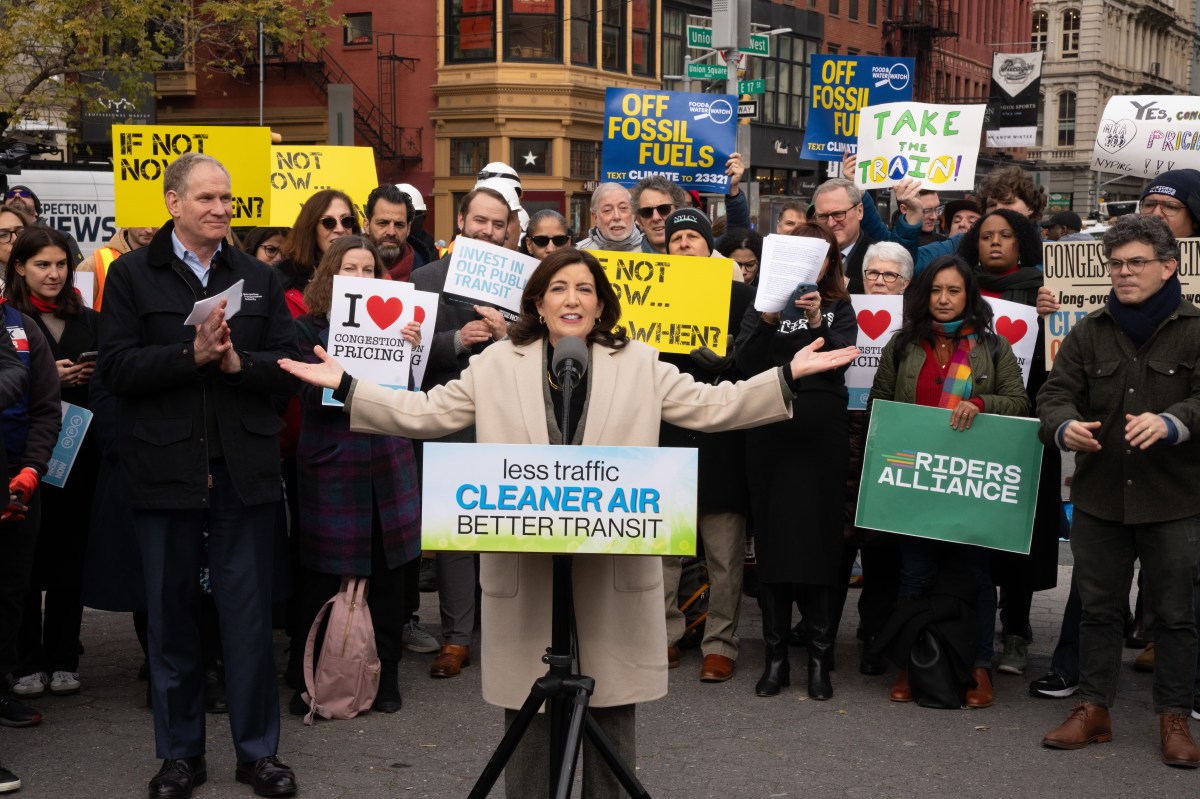
Gov. Kathy Hochul shocked the New York political world when she suddenly announced an indefinite pause of the congestion pricing tolling program in early June, just weeks before it was set to take effect.
The governor said she was pausing the plan, which would have charged drivers entering Manhattan below 60th Street a base toll of $15, out of concern for the economic well-being of working-class New Yorkers. Yet it was widely reported that Hochul shelved congestion pricing because she believed it would be a political liability for congressional candidates in suburban districts where the program is widely unpopular.
Then, shortly after the November election, Hochul announced she would restart congestion pricing with the tolls discounted by 40% from those approved under the original plan. But, even given the timing, Hochul maintained the pause had nothing to do with politics.
Latimer unseats Bowman
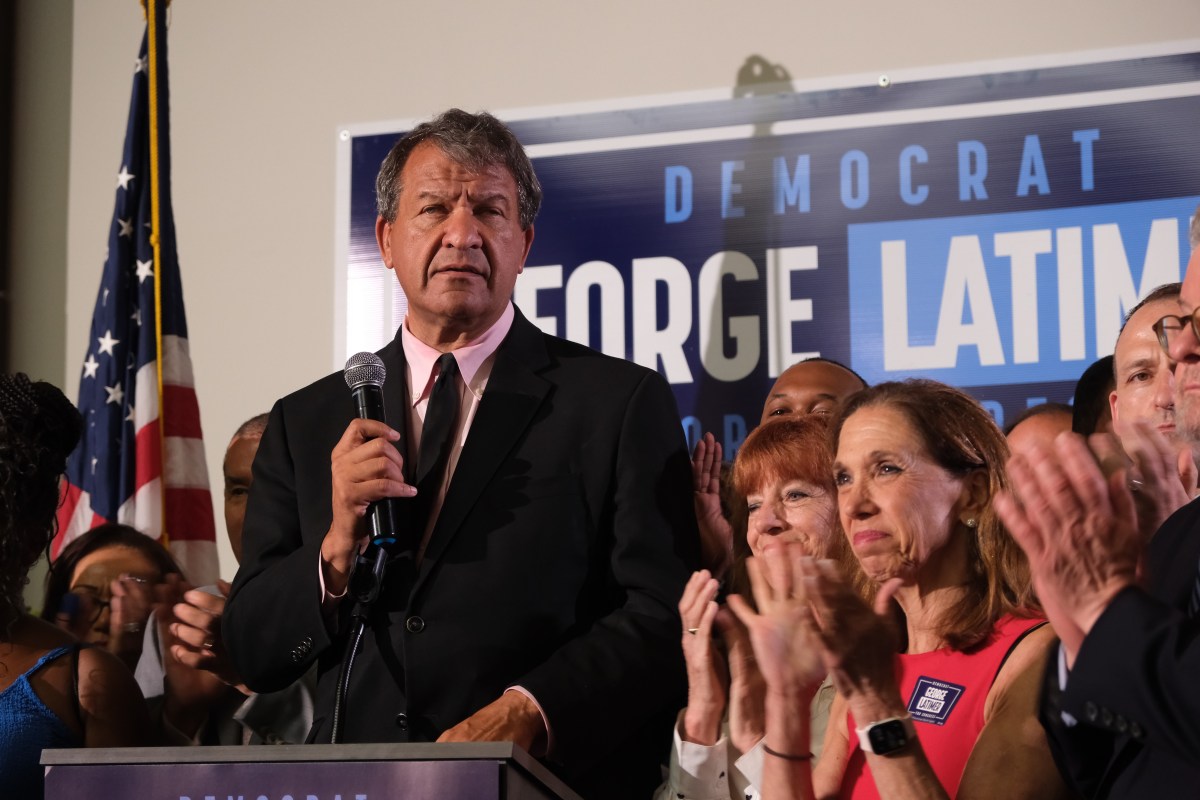
The Democratic Party’s left flank suffered a major blow when Westchester County Executive George Latimer unseated “squad” member Jamaal Bowman in a June primary for a seat that covers much of Westchester and part of the Bronx.
Latimer’s win by roughly 10 percentage points capped off a race defined by acrimony and personal attacks. Throughout the contest, the pro-Israel Latimer accused Bowman, a staunch critic of the Jewish state, of antisemitism. Bowman in turn, alleged that Latimer had an “abysmal record” on racial justice issues as county executive and that he only catered to wealthy swaths of the district.
The primary was also the most expensive House race in US history, according to AdImpact, an ad tracking service. The bulk of that spending came from the American Israel Public Affairs Committee (AIPAC), whose super PAC reportedly spent roughly $14 million on attack ads against Bowman.
Latimer sailed to victory in the general election and is headed to Congress next month.
Charter Commission fight
One of the most notable tiffs between Mayor Adams and the City Council this year began when lawmakers introduced legislation that would have expanded their so-called “advice-and-consent” powers. The measure would give the body the authority to approve or reject an additional 20 mayoral appointments to lead city agencies.
But while the council overwhelmingly passed the legislation in June, Mayor Adams, who was not a fan of it, had already made moves to halt it. The mayor convened a Charter Revision Commission, a 13-member panel charged with drafting proposals to change the City Charter.
The move essentially blocked the council’s legislation from going before voters as a November ballot initiative because measures proposed by a mayoral Charter Commission take priority over those advanced by the council under state law. Furthermore, two of the proposals crafted by the commission give the mayor a greater hand in the council’s legislative process.
Despite City Council Speaker Adrienne Adams’ efforts to dissuade voters from supporting the mayor’s ballot measures, four of the five proposed by the panel passed in the November general election. Among the items approved by voters were the two proposals that will give City Hall more power over council legislation.
Randy Mastro for corporate counsel
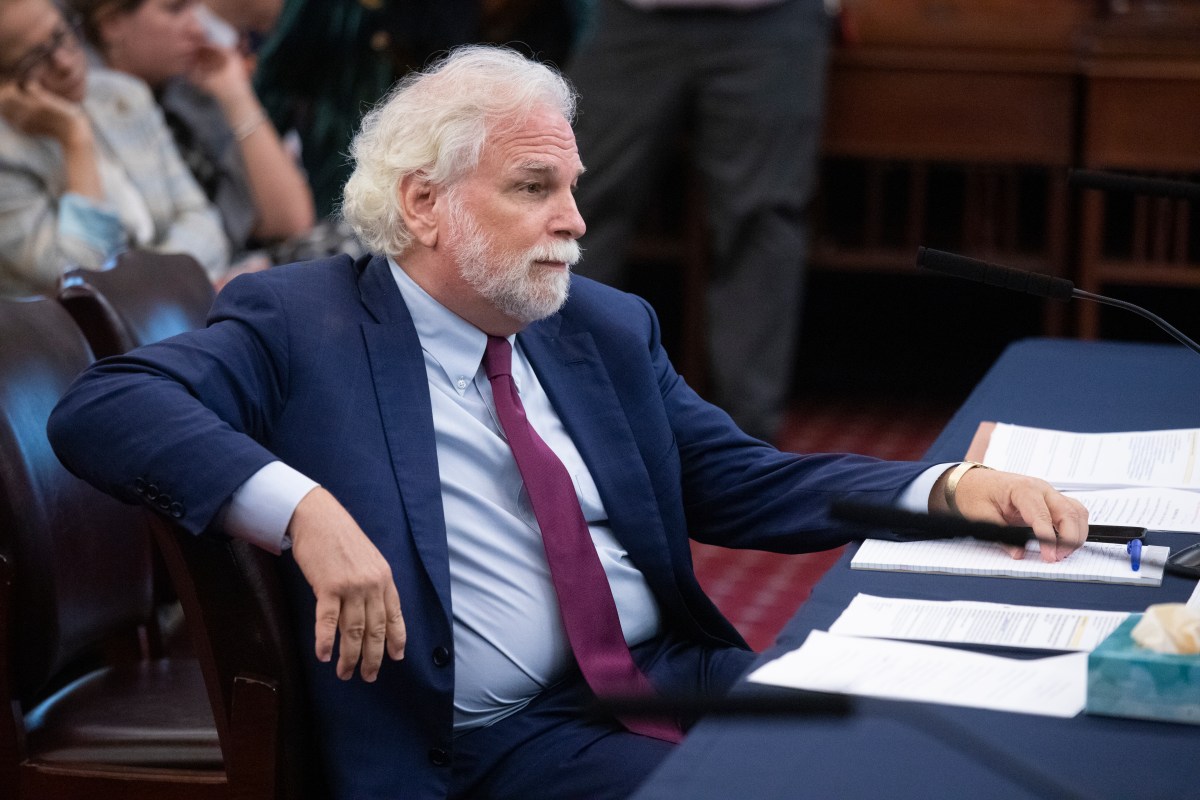
Even as Mayor Adams and the City Council duked it out over the Charter Revision Commission, another skirmish brewed in the city’s halls of power. This fight involved Adams’ quest to appoint Randy Mastro, a controversial attorney, as the city’s top lawyer.
Mastro’s appointment appeared doomed from the start. Much of the City Council, which has advice-and-consent power over the position—known as corporation counsel—came out against him even before he was formally nominated. Council members cited concerns over Mastro’s time working for ex-GOP Mayor Rudy Giuliani and his history of clients as a private attorney, which includes the oil giant Chevron and former Republican New Jersey Gov. Chris Christie.
Mastro eventually withdrew his nomination for the role following a bruising City Council hearing, in which countless lawmakers raked his record over the coals. In his withdrawal letter, the seasoned litigator blasted the hearing as “anything but fair,” while council leadership said his missive confirmed that he was not right for the job.
Adams subsequently nominated city Law Department veteran Muriel Goode-Trufant for the post. The City Council approved her nomination in early December.
The mayor’s indictment
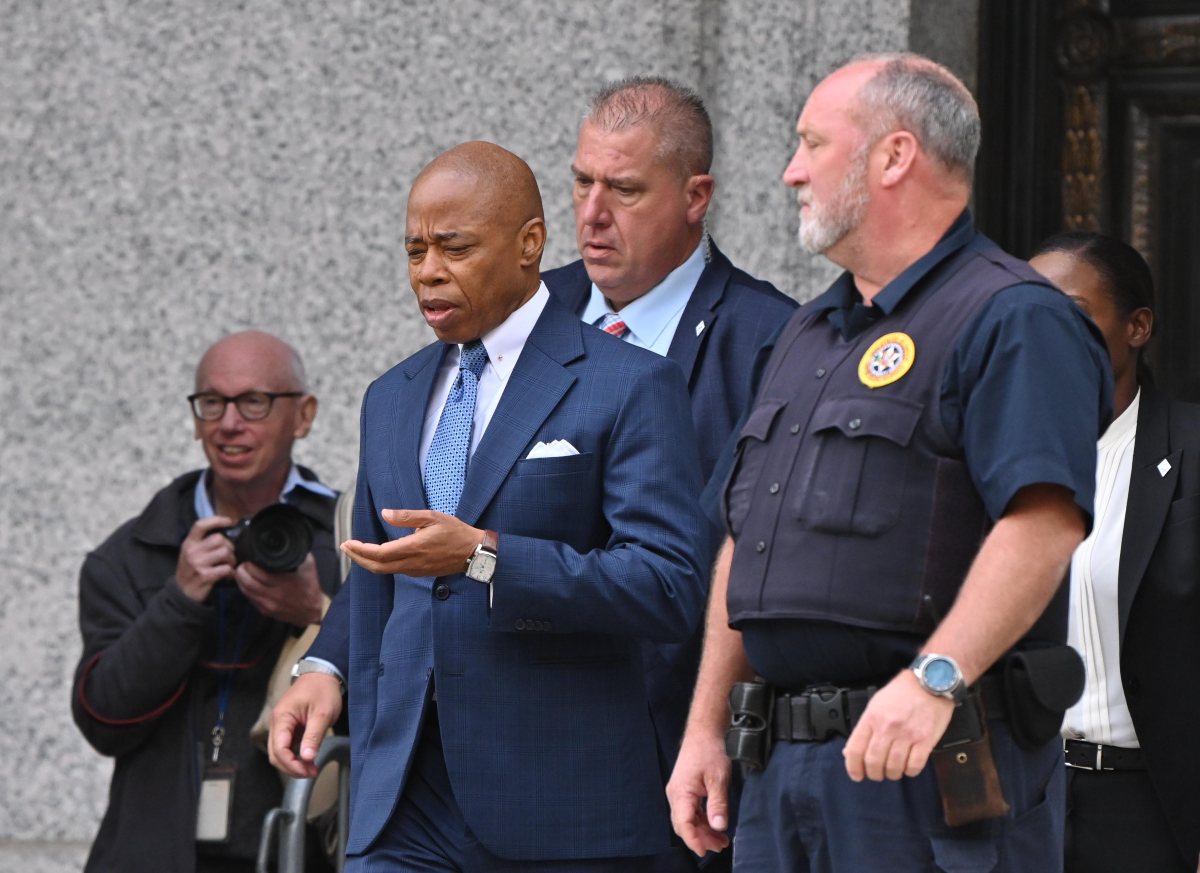
Nearly a year after FBI agents raided the home of Mayor Adams’ chief fundraiser, revealing a federal probe into his campaign, he became the first sitting New York City mayor to be indicted.
On Sept. 26, Manhattan US Attorney Damian Williams charged Adams with five criminal counts, including bribery, soliciting illegal foreign campaign donations and wire fraud.
The indictment alleged that Adams engaged in a nearly decade-long scheme of accepting luxury gifts and illegal campaign donations from Turkish nationals in exchange for favors. The case hinges on Adams allegedly using his influence as the Democratic mayoral nominee in 2021 to speed up city approvals for a Turkish consulate building that had failed to pass fire safety inspections.
Adams has pleaded not guilty and is set to stand trial on April 21 of next year.
Adams and Trump
Although Adams has mostly refrained from discussing his criminal charges publicly, he has suggested without evidence that the case is politically motivated. Specifically, he has charged that President Biden’s Justice Department brought charges against him because he was outspoken about not getting enough federal support for the city’s migrant crisis.
President-elect Trump has publicly expressed sympathy with Adams, repeating the notion that the case is political. In the weeks leading up to and since the presidential election, Adams has had increasingly positive things to say about Trump, fueling speculation that he is angling for a pardon from the incoming president.
Trump may be willing to give Adams a pass. In mid-December, he said he would consider pardoning the mayor.
Parade of Adams admin departures
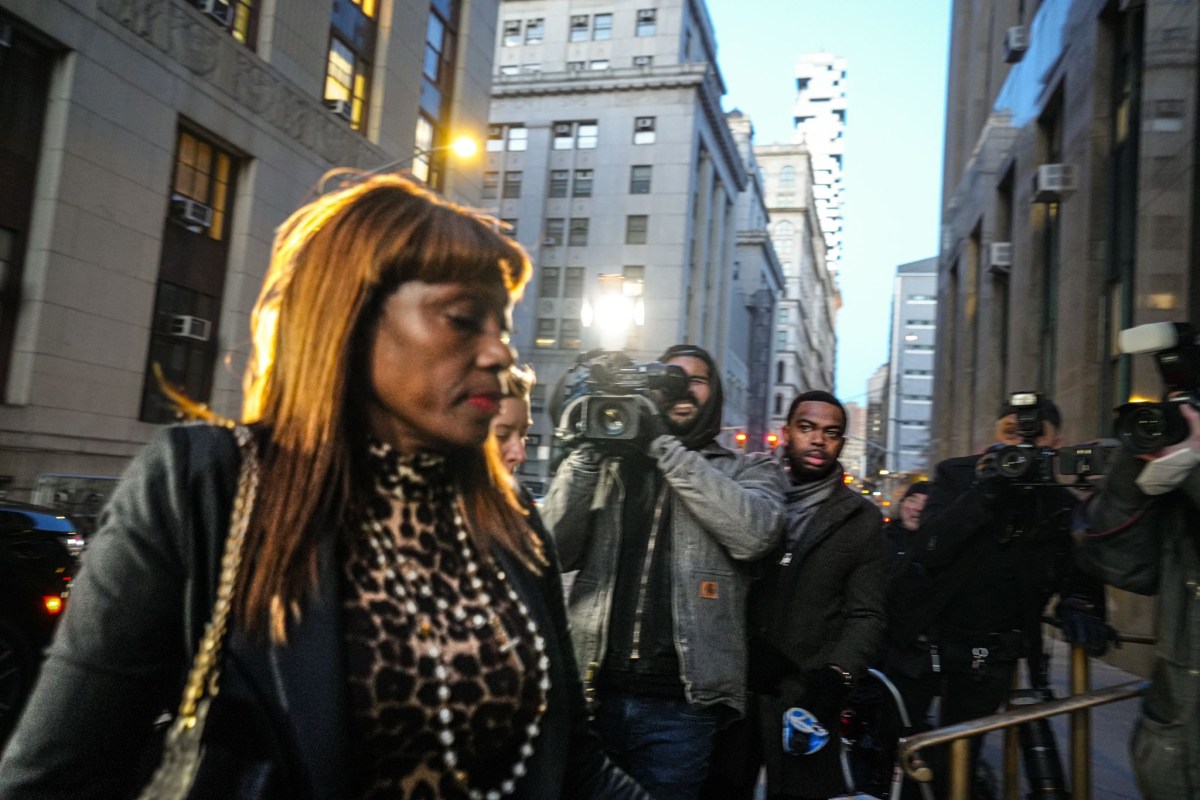
Weeks before Adams was indicted, a wave of federal law enforcement raids on several top administration figures revealed previously unknown investigations into his inner circle.
Those raids, as well as Adams’ own indictment, triggered a spate of high-profile departures at City Hall. Those who left the administration include former First Deputy Mayor Sheena Wright; her husband, former Education Chancellor David Banks, his brother, former Deputy Mayor for Public Safety Phil Banks; former NYPD Commissioner Edward Caban; and most recently, ex-Chief Adviser Ingrid Lewis-Martin.
Adams has long insisted the mass exodus of his top officials in recent months had nothing to do with the federal probes or his indictment. But Gov. Hochul, who has the power to remove Adams from office, has said that she asked him to “clean house” of scandal-scarred staffers and that he has complied.
Trump wins more votes in NY
Perhaps one of the more shocking political stories this year was how well Trump performed in deep blue New York City during the Nov. 5 election.
While Democratic Vice President Kamala Harris still handily won the five boroughs with roughly 68% of the vote, Trump garnered 30%—a 7% boost from his performance against President Biden in 2020.
Trump’s gains were driven by shifts among working-class voters in parts of the Bronx and Queens.
The Boogie Down, which had previously been the city’s bluest borough, saw an 11-point shift in Trump’s favor from the 2020 election — giving him 27% of the vote. In Queens, Trump grew his support from four years ago by nearly the same margin.
‘Yes’ to City of Yes
While 2024 was undoubtedly Adams’ toughest year in office so far, it was also the year where he scored perhaps his greatest policy achievement as mayor with the passage of his “City of Yes for Housing Opportunity” plan.
The controversial proposal is a bundle of zoning changes designed to make it easier to build much-needed housing in the five boroughs. Following modifications pushed by the city council, it is projected to spur the construction of 82,000 new housing units over the next 15 years, down from its original estimate of 109,000 units.
City of Yes narrowly passed the council on Dec. 5 by 31 to 20 votes. The final deal included several tweaks advanced by council members with concerns about the plan and an additional $5 billion to fund affordable housing construction and infrastructure improvements.
Even with the changes, many council members representing lower-slung communities in the outer boroughs voted against them. They remain concerned that the zoning changes will alter the character of their communities and overwhelm areas that do not have the proper infrastructure to accommodate more housing.

















